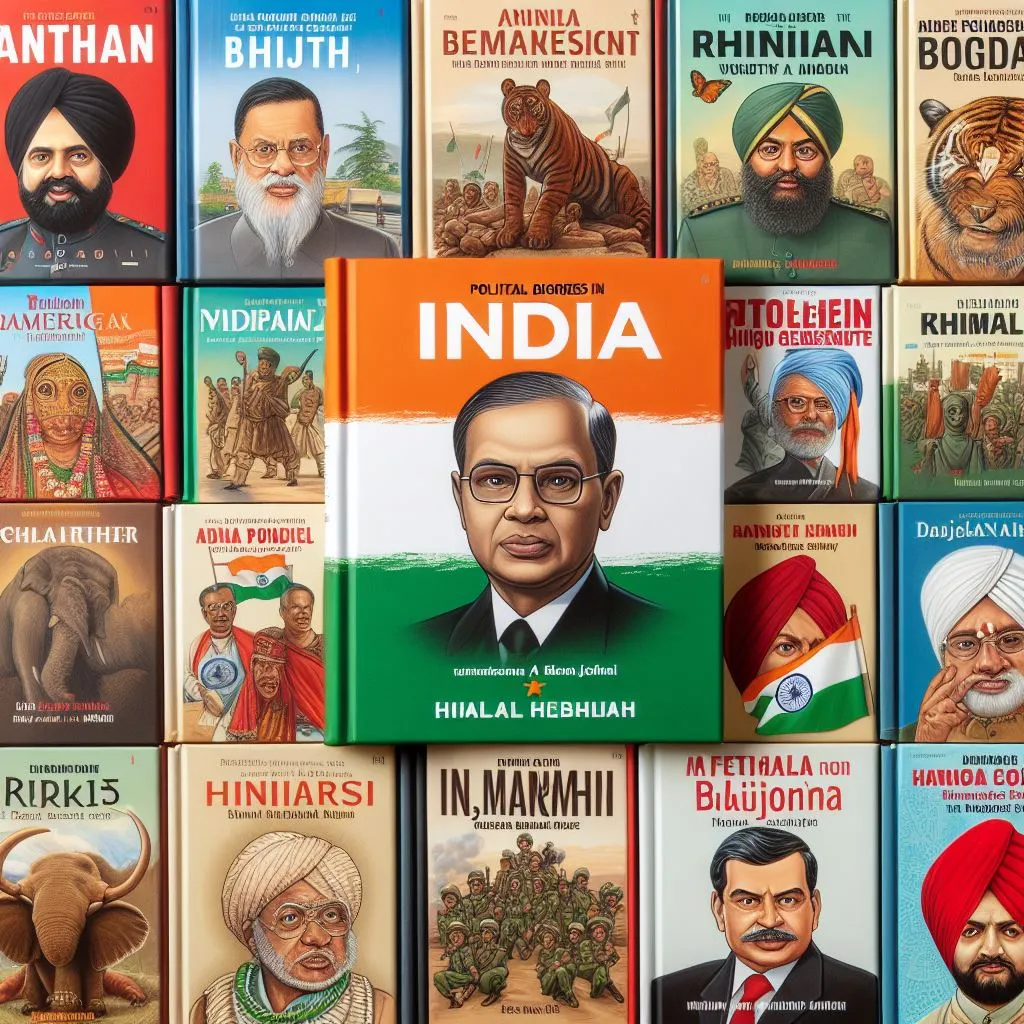In the vast expanse of literature, biographies and memoirs offer intimate glimpses into the lives of remarkable individuals who have shaped history in myriad ways. From political leaders to social reformers, each story unfolds with unique perspectives and insights.
Here’s a curated list of compelling 11 Political biographies books and memoirs that captivate readers with their narratives.
| Book Title | Author | Avg. Rating |
|---|---|---|
| Behenji | Ajoy Bose | 3.68 |
| Kamaraj: The Life and Times… | Bala Jeyaraman | 4.15 |
| Ambedkar | Gail Omvedt | 4.31 |
| My Presidential Years | Ramaswamy Venkataraman | 3.00 |
| A Gardener in the Wasteland… | Srividya Natarajan | 4.00 |
| My Frozen Turbulence in Kas… | Jagmohan | 4.15 |
| Rewriting history: The life… | Uma Chakravarti | 3.93 |
| Periyar: A Political Biogra… | Bala Jeyaraman | 4.00 |
| Nehru: The Invention of India | Shashi Tharoor | 3.86 |
| Amma: Jayalalithaa s Journe… | Vaasanthi | 3.38 |
From the transformative journey of Kamaraj to the relentless activism of Ambedkar, these works delve into the complexities of Indian politics and social dynamics. Readers are transported through time, witnessing the struggles and triumphs of iconic figures like Periyar and Nehru, whose legacies continue to shape the nation.
Whether it’s the poignant memoir of Bina Das or the insightful biography of Jinnah, each book offers a nuanced portrayal of its subject, inviting readers to contemplate the intersections of history, ideology, and personal conviction. Through these narratives, we embark on a journey of discovery, exploring the diverse tapestry of Indian identity and aspiration.
1st Book – Behenji by Ajoy Bose
Ajoy Bose’s “Behenji” Explores the Political Landscape of India’s Dalit Movement

Renowned journalist and political commentator Ajoy Bose unveils the intricate layers of Indian politics through his book “Behenji.” With an average rating of 3.68 from 76 ratings and 18 reviews, this biography provides a deep dive into the life and career of Mayawati, a prominent figure in Dalit politics. Published on May 1, 2008, this 296-page paperback offers readers a comprehensive exploration of Mayawati’s journey.
Bose, who is esteemed as an expert on Mayawati and Dalit politics, brings nearly four decades of journalistic experience to the table. He has been associated with various media outlets and is currently a senior political columnist and television commentator. His extensive career includes stints with leading newspapers, magazines, and broadcasting networks both in India and abroad.
Through “Behenji,” Bose sheds light on Mayawati’s rise to prominence, her strategies in navigating the complex political landscape of India, and her impact on Dalit empowerment. The book delves into her ideologies, challenges, and contributions, offering readers a nuanced understanding of her role in shaping Indian politics. With 194 people expressing interest in reading and 13 currently engaged in the book, “Behenji” continues to spark curiosity and discussion among readers intrigued by Indian political history.
As readers immerse themselves in “Behenji,” they embark on a journey guided by Bose’s insightful narrative, exploring the intersections of power, identity, and social change in contemporary India. With its meticulous research and engaging prose, “Behenji” stands as a testament to Bose’s expertise and dedication in unraveling the complexities of Indian politics and society.
2nd Book – Kamaraj: The Life and Times of K. Kamaraj by Bala Jeyaraman
Bala Jeyaraman Explores the Legacy of K. Kamaraj in “Kamaraj: The Life and Times”

In “Kamaraj: The Life and Times of K. Kamaraj,” author Bala Jeyaraman delves into the remarkable journey of Kumarasami Kamaraj, a figure revered in Indian politics. With an average rating of 4.15 from 143 ratings and 17 reviews, this biography offers readers a profound insight into Kamaraj’s multifaceted career and enduring impact on Indian society.
Kamaraj’s legacy is indeed legendary, encompassing roles as diverse as freedom fighter, Congress party boss, chief minister, national leader, kingmaker, and opposition leader. Jeyaraman meticulously explores Kamaraj’s pivotal contributions, highlighting his instrumental role in advancing education for rural populations through initiatives like free education and the Midday Meal Scheme in Tamil Nadu.
Beyond his political achievements, Kamaraj is remembered for his integrity and humility, traits that guided his leadership and endeared him to the masses. His pivotal role in shaping the political landscape of India, including his support for leaders like Lal Bahadur Shastri and Indira Gandhi, further solidifies his place in history. Awarded the Bharat Ratna posthumously in 1976, Kamaraj’s legacy continues to inspire generations.
Jeyaraman’s biography, published by Rupa Publications India on October 1, 2013, provides readers with a concise yet comprehensive account of Kamaraj’s life. Spanning 129 pages in its Kindle Edition, the book situates Kamaraj’s actions within a broader historical context, offering readers a deeper understanding of his visionary leadership and enduring impact on Indian politics.
As readers delve into “Kamaraj: The Life and Times,” they embark on a journey through the life of an exceptional leader whose contributions continue to shape the fabric of Indian society. With its meticulous research and engaging narrative, Jeyaraman’s biography stands as a testament to Kamaraj’s enduring legacy and his pivotal role in India’s political history.
3rd Book – Ambedkar by Gail Omvedt
Gail Omvedt’s “Ambedkar”: A Tribute to the Architect of Indian Social Justice

In “Ambedkar,” acclaimed author Gail Omvedt delves into the profound journey of Dr. Bhimrao Ramji Ambedkar, a towering figure in India’s social and political landscape. With an impressive average rating of 4.31 from 297 ratings and 32 reviews, this biography offers readers an intimate portrayal of Ambedkar’s relentless struggle against the shackles of caste discrimination.
Omvedt’s narrative unfolds with empathy, tracing Ambedkar’s path from overcoming the stigma of untouchability to his pursuit of higher education both in India and abroad. The book illuminates Ambedkar’s unwavering determination to empower marginalized communities and challenge centuries-old social hierarchies.
At the heart of “Ambedkar” lies the profound impact of Ambedkar’s vision on Indian society. His statues, scattered across the remotest villages, stand as symbols of hope and aspiration for Dalits nationwide. Through meticulous research and compelling storytelling, Omvedt captures the essence of Ambedkar’s struggle for social justice and equality.
Published on January 1, 2004, “Ambedkar” spans 167 pages in its Hardcover edition. Currently, 52 readers are engaged in its exploration, while an impressive 1,279 individuals express their desire to delve into its pages.
Dr. Gail Omvedt, an American-born Indian scholar, sociologist, and human rights activist, brings her expertise to bear in unraveling Ambedkar’s legacy. Her involvement in Dalit and anti-caste movements, coupled with her scholarly pursuits, lends depth and authenticity to the narrative.
As readers immerse themselves in “Ambedkar,” they embark on a transformative journey through the life and ideals of a visionary leader. Omvedt’s tribute to Ambedkar resonates with contemporary relevance, inspiring readers to confront injustice and champion the cause of social equity.
4th Book – My Presidential Years by Ramaswamy Venkataraman
Ramaswamy Venkataraman Reflects on “My Presidential Years”
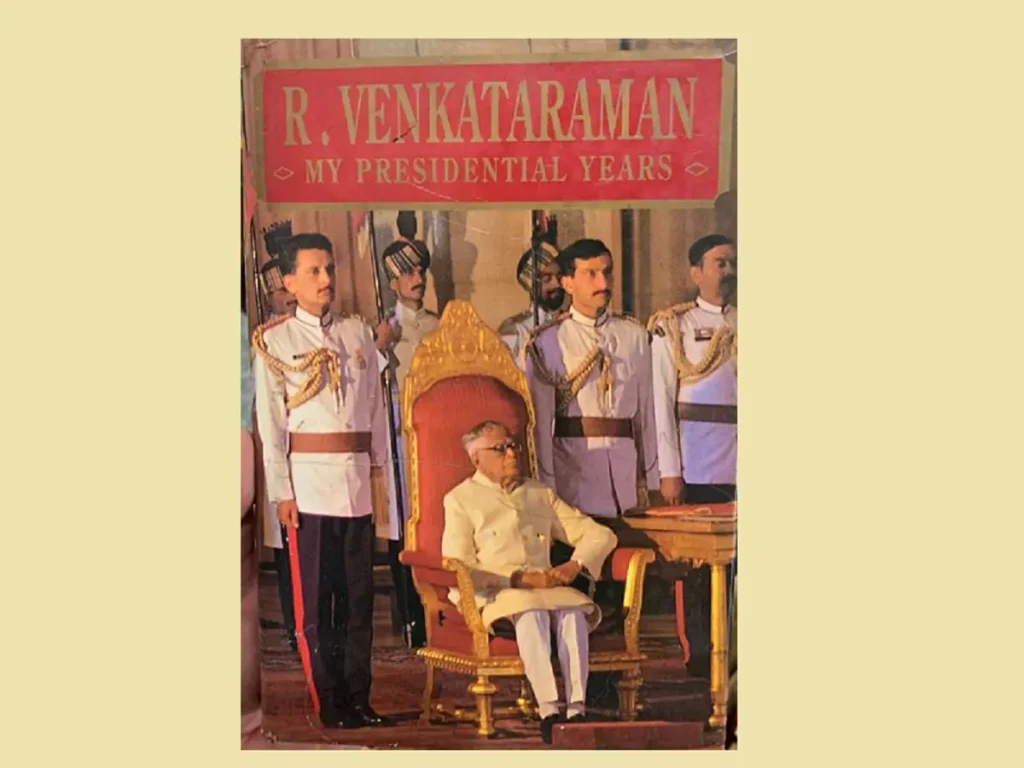
In “My Presidential Years,” Ramaswamy Venkataraman offers readers a rare glimpse into the corridors of power during his tenure as the President of India. Despite its modest average rating of 3.00 from 3 ratings and 1 review, this book holds significance as a firsthand account of Venkataraman’s experiences at the helm of India’s highest office.
Published in Hardcover format on January 1, 1994, by South Asia Books, “My Presidential Years” chronicles Venkataraman’s reflections on his time in office, providing insights into the challenges and triumphs he encountered. The book serves as a testament to Venkataraman’s contributions to Indian governance and his role in shaping the nation’s trajectory during a pivotal period.
Readers intrigued by political memoirs will find “My Presidential Years” to be a valuable addition to their reading list. While its ratings may not soar to the heights of other biographies, the book offers a unique perspective on Indian politics from a vantage point of authority and firsthand experience.
With its original title unchanged and subsequent editions released in different formats by HarperCollins/Indus, “My Presidential Years” stands as a testament to Venkataraman’s legacy as a statesman and a scholar. Despite its modest reception, the book holds intrinsic value as a historical document, providing valuable insights into the complexities of governance and leadership in India.
5th Book – A Gardener in the Wasteland by Srividya Natarajan, Aparajita Ninan
Reviving History: “A Gardener in the Wasteland: Jotiba Phule’s Fight for Liberty”
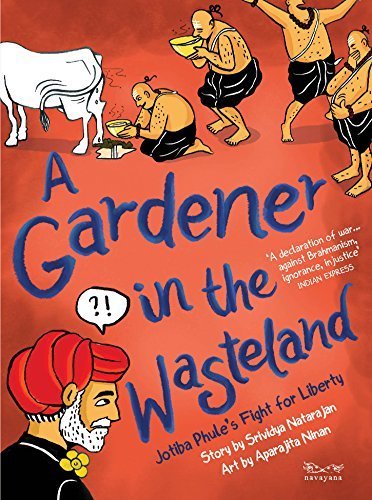
In “A Gardener in the Wasteland: Jotiba Phule’s Fight for Liberty,” Srividya Natarajan and Aparajita Ninan breathe new life into the profound legacy of Jotirao Govindrao Phule, a pioneering figure in India’s social reform movement. With an impressive average rating of 4.00 from 227 ratings and 32 reviews, this graphic novel transcends traditional storytelling to offer readers a visually captivating and intellectually stimulating exploration of Phule’s ideals.
Originally penned by Phule in 1873, “Gulamgiri” (Slavery) serves as the cornerstone of this narrative, critiquing the Vedas and Brahmanical oppression with scathing wit. Natarajan and Ninan skillfully intertwine Phule’s visionary activism with the story of Savitribai, his partner in struggle, breathing fresh life into their enduring legacy.
Amidst today’s climate of intolerance, “A Gardener in the Wasteland” emerges as a manifesto of resistance, urging readers to confront societal injustices with courage and conviction. Hailed by Hindustan Times as reminiscent of Marjane Satrapi’s “Persepolis,” this graphic novel brings to the forefront Phule’s unequivocal condemnation of oppression, offering a timely reminder of the importance of dissent in the face of tyranny.
Published in Hardcover format on December 12, 2011, this 128-page masterpiece continues to captivate readers, with 4 currently engaged in its exploration and 291 expressing their eagerness to delve into its pages. Natarajan, with 18 books to her credit and 13 followers, showcases her expertise in weaving together history, politics, and feminism, while Ninan’s illustrations breathe vibrancy into Phule’s narrative, making “A Gardener in the Wasteland” an essential addition to any reader’s collection.
As readers embark on this visual and intellectual journey, they are invited to rediscover the legacy of Jotiba Phule and Savitribai, whose unwavering commitment to liberty continues to inspire generations. Through its powerful storytelling and evocative imagery, “A Gardener in the Wasteland” serves as a beacon of hope and resilience in the ongoing struggle for justice and equality.
6th Book – My Frozen Turbulence in Kashmir by Jagmohan
Unveiling the Realities: “My Frozen Turbulence in Kashmir” by Jagmohan

Jagmohan’s “My Frozen Turbulence in Kashmir” stands as a compelling analysis of the tumultuous events during his two terms of governorship in the sensitive and strategic Indian state of Jammu & Kashmir. With an impressive average rating of 4.15 from 189 ratings and 16 reviews, this book offers readers a deep insight into the complex issues that have shaped the region’s history.
Published in Hardcover format on January 1, 1993, Jagmohan’s narrative lays bare the roots of the challenges faced by the Indian state in Kashmir. With meticulous attention to detail and supported by concrete evidence, he examines the ‘soft’ and ‘permissive’ attitude of the Indian state, administrative infirmities, public corruption, and the dynamics of negative forces that have fueled the turmoil in the region.
The book vividly portrays the brutal face of terrorism and the patterns of subversion that have plagued Kashmir. Jagmohan’s forceful arguments highlight the urgent need for a reformed and rejuvenated India with a new vision to address the ground-level realities in Kashmir.
In the new chapter added to this edition, Jagmohan continues to shed light on the ongoing challenges faced by Kashmiris and the nation as a whole. He emphasizes the need to confront the ‘tyranny of shallowness’ and calls for a deeper understanding of the complexities of the Kashmir issue.
With 102 readers currently engaged and 1,614 expressing their interest in reading it, “My Frozen Turbulence in Kashmir” remains a pivotal work in understanding the historical and political context of Kashmir. Jagmohan’s forceful personality and profound insights resonate throughout the pages of this seminal book, making it essential reading for anyone seeking to comprehend the complexities of the region.
7th Book – Rewriting History: The Life and Times of Pandita Ramabai by Uma Chakravarti
Rewriting History: The Life and Times of Pandita Ramabai by Uma Chakravarti
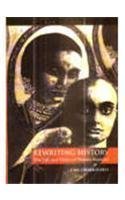
In “Rewriting History: The Life and Times of Pandita Ramabai,” Uma Chakravarti delves into the reconstitution of patriarchies in 19th-century Maharashtra through the lens of one of India’s earliest feminists, Pandita Ramabai. Despite its modest average rating of 3.93 from 14 ratings and no reviews, this book offers a profound exploration of gender relations in colonial India.
Published in Paperback format on January 1, 2000, this 370-page volume examines how the colonial state’s institutional structures, caste contestations, class formation, and nationalism intersected to transform and reorganize gender relations. Chakravarti’s narrative sheds light on the complexities of societal change during this period and the role of individuals like Pandita Ramabai in challenging traditional norms.
Spanning across genres of feminism, nonfiction, history, India, and biography, “Rewriting History” presents a comprehensive analysis of Ramabai’s life, work, and the historical context in which she operated. Through meticulous research and insightful commentary, Chakravarti offers readers a nuanced understanding of the intersections of gender, caste, and colonialism in 19th-century Maharashtra.
While the book may not boast a large number of ratings or reviews, its significance lies in its contribution to feminist historiography and the broader discourse on colonial India. “Rewriting History” stands as a testament to Chakravarti’s scholarship and her commitment to uncovering marginalized voices in the historical narrative.
8th Book – Periyar: A Political Biography of E.V. Ramasamy by Bala Jeyaraman
Getting the Legacy of Periyar: “A Political Biography of E.V. Ramasamy” by Bala Jeyaraman
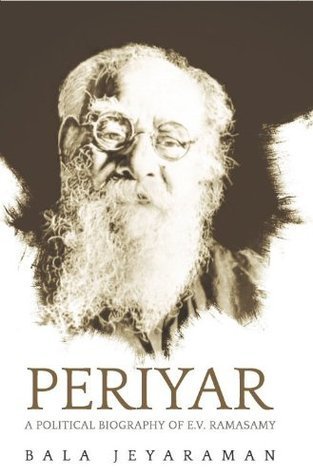
Bala Jeyaraman’s “A Political Biography of E.V. Ramasamy” sheds light on the transformative influence of Periyar, a stalwart who propagated the principles of rationalism, self-respect, women’s rights, and the eradication of caste. Despite its modest average rating of 4.00 from 268 ratings and 24 reviews, this book stands as a tribute to Periyar’s revolutionary impact on Tamil society.
Published in Hardcover format on October 1, 2013, this 124-page volume delves into Periyar’s tireless efforts to combat the exploitation and marginalization of non-Brahmin indigenous Dravidian peoples in South India. His advocacy for social reform and the removal of caste-based discrimination has left an indelible mark on Tamil society, earning him accolades such as “the prophet of the new age” and “the Socrates of South East Asia.”
Spanning across genres of nonfiction, politics, biography, history, and India, Jeyaraman’s biography offers a comprehensive exploration of Periyar’s life and legacy. From his bold stance against the imposition of Indo-Aryan India to his pivotal role in reforming the Tamil alphabet, Periyar’s contributions reverberate through the annals of history.
With 59 readers currently engaged and 552 expressing their eagerness to delve into its pages, “A Political Biography of E.V. Ramasamy” continues to captivate audiences with its portrayal of Periyar’s unwavering commitment to social justice. Jeyaraman, with four books to their credit and four followers, showcases their expertise in illuminating the lives of influential figures like Periyar, ensuring that their legacies endure for generations to come.
9th Book – Nehru by Bala Jeyaraman
Exploring Nehru’s Vision: “Nehru: The Invention of India” by Shashi Tharoor

Shashi Tharoor’s “Nehru: The Invention of India” provides readers with a compelling portrait of Jawaharlal Nehru, the secularist and spiritual companion of Mahatma Gandhi. Despite its modest average rating of 3.86 from 1,157 ratings and 121 reviews, this book stands as a testament to Nehru’s pivotal role in shaping the modern Indian state.
Published in paperback format on December 1, 2004, by Arcade Publishing, this 304-page volume delves into Nehru’s upbringing within a politically influential family and his journey toward becoming an activist. Tharoor explores Nehru’s contributions to India’s non-violent struggle for independence and his witness to the tumultuous violence of partition.
Spanning across genres of history, India, nonfiction, biography, politics, and Indian literature, Tharoor’s biography offers a comprehensive examination of Nehru’s life and legacy. From his early encounters with Enlightenment philosophies to his enduring commitment to secularism and nationalism, Nehru’s multifaceted persona comes to life within these pages.
With 158 readers currently engaged and 2,127 expressing their eagerness to delve into its contents, “Nehru: The Invention of India” continues to captivate audiences with its nuanced portrayal of one of India’s most influential leaders. Tharoor, with 85 books and 2,806 followers to their credit, demonstrates their expertise in navigating the complexities of Indian history and politics, ensuring that Nehru’s legacy endures for generations to come.
10th Book – ‘Amma‘ by Vaasanthi
Exploring the Journey of “Amma”: Jayalalithaa’s Evolution from Movie Star to Political Powerhouse
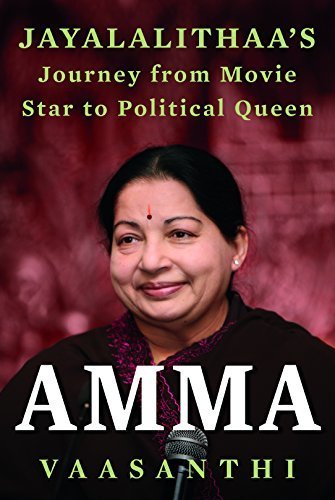
Vaasanthi’s “Amma: Jayalalithaa’s Journey from Movie Star to Po” offers readers a fascinating insight into the remarkable transformation of Jayalalithaa, from a prominent figure in the Indian film industry to a dominant force in Tamil Nadu politics. Despite receiving an average rating of 3.38 from 283 ratings and 54 reviews, this biography provides a compelling narrative of Jayalalithaa’s life and career.
Published in paperback format on August 15, 2016, by Juggernaut Books, this 200-page volume sheds light on Jayalalithaa’s journey, tracing her trajectory from her early days as a movie star to her eventual rise as a prominent political figure. The book delves into the intricacies of Tamil Nadu politics, offering insights into the key events and decisions that shaped Jayalalithaa’s political career.
Spanning across genres of nonfiction, biography, politics, India, history, and Indian literature, Vaasanthi’s work provides a comprehensive understanding of Jayalalithaa’s legacy. With its publication in multiple editions, including Kindle and paperback versions, the book continues to resonate with readers interested in the intersection of cinema and politics in India.
Currently, 39 readers are engaged in exploring the pages of “Amma,” while 536 express their eagerness to delve into its contents. Vaasanthi, with 109 books and 23 followers to her credit, demonstrates her expertise as an Indian journalist and writer, offering readers a nuanced perspective on one of the most influential figures in Tamil Nadu’s political landscape.
As readers navigate through the pages of “Amma,” they are invited to witness the extraordinary journey of Jayalalithaa, whose life serves as a testament to resilience, ambition, and the pursuit of political power in contemporary India.
11th Book – ‘A Forgotten Liberator‘ by Braj Ranjan BaMani and Pamela Sardar
Unveiling the Legacy of Savitribai Phule: A Forgotten Liberator
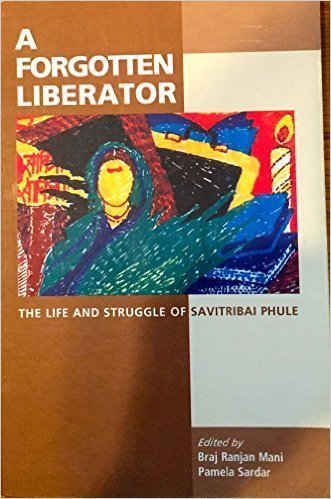
Braj Ranjan BaMani and Pamela Sardar’s “A Forgotten Liberator: The Life and Struggle of Savitribai Phule” offers a compelling exploration into the life and contributions of one of the most significant figures in 19th-century India. Despite receiving an impressive average rating of 4.44 from 16 ratings and 4 reviews, this book provides a profound insight into Savitribai Phule’s relentless battle against caste oppression, patriarchy, and her tireless advocacy for the empowerment of peasants.
Published in paperback format on January 1, 2008, by Mountain Peak, this 95-page volume delves into the multifaceted struggles and triumphs of Savitribai Phule, shedding light on her pivotal role in challenging societal norms and advocating for social justice. The essays within this book serve as a testament to Savitribai’s unwavering commitment to equality and her pioneering efforts in the realms of feminism, biography, and nonfiction.
Spanning across genres such as feminism, biography, and nonfiction, “A Forgotten Liberator” paints a vivid portrait of Savitribai Phule’s indomitable spirit and her enduring legacy as a trailblazer in Indian history. With its publication in multiple editions and translations, including Kindle and paperback versions, the book continues to resonate with readers seeking to understand the profound impact of Savitribai Phule’s work on Indian society.
Currently, 4 readers are immersed in the exploration of Savitribai’s life and struggles, while 283 express their keen interest in discovering the profound insights offered by this remarkable biography. Braj Ranjan BaMani, with one book to their credit, exemplifies their dedication to preserving and commemorating the invaluable contributions of Savitribai Phule to India’s social fabric.
As readers navigate through the pages of “A Forgotten Liberator,” they are invited to embark on a journey of discovery and enlightenment, unraveling the remarkable story of Savitribai Phule’s unwavering pursuit of justice, equality, and liberation for all.
FAQs
1. “Behenji” by Ajoy Bose
Q1: What is “Behenji” about?
A: “Behenji” is a biography that delves into the life and political career of Mayawati, exploring her journey as a prominent figure in Indian politics.
Q2: Who is the author of “Behenji”?
A: The author of “Behenji” is Ajoy Bose, a seasoned journalist and political commentator known for his expertise on Indian politics.
Q3: When was “Behenji” first published?
A: “Behenji” was first published on May 1, 2008.
2. “Kamaraj: The Life and Times of K. Kamaraj” by Bala Jeyaraman
Q1: What is “Kamaraj” about?
A: “Kamaraj” is a biography that chronicles the life and political career of Kumarasami Kamaraj, highlighting his contributions to Indian politics and society.
Q2: Who are the authors of “Kamaraj”?
A: The author of “Kamaraj” is Bala Jeyaraman, who provides insights into the life of K. Kamaraj and his impact on Indian politics.
Q3: When was “Kamaraj” first published?
A: “Kamaraj” was first published on October 1, 2013.
3. “Ambedkar” by Gail Omvedt
Q1: What is “Ambedkar” about?
A: “Ambedkar” is a biography that portrays the life and struggles of Dr. B.R. Ambedkar, focusing on his fight against caste discrimination and his contributions to social justice in India.
Q2: Who is the author of “Ambedkar”?
A: The author of “Ambedkar” is Gail Omvedt, a renowned scholar and human rights activist known for her work on Dalit and anti-caste movements.
Q3: When was “Ambedkar” first published?
A: “Ambedkar” was first published on January 1, 2004.
4. “My Presidential Years” by Ramaswamy Venkataraman
Q1: What is “My Presidential Years” about?
A: “My Presidential Years” offers insights into the tenure of Ramaswamy Venkataraman as the President of India, providing a firsthand account of his experiences in office.
Q2: Who is the author of “My Presidential Years”?
A: The author of “My Presidential Years” is Ramaswamy Venkataraman, who shares his reflections on his time as the President of India.
Q3: When was “My Presidential Years” first published?
A: “My Presidential Years” was first published on January 1, 1994.
5. “Rewriting history: The life and times of Pandita Ramabai” by Uma Chakravarti
Q1: What is “Rewriting history” about?
A: “Rewriting history” is a biography that explores the life and times of Pandita Ramabai, shedding light on her contributions to Indian history and women’s empowerment.
Q2: Who is the author of “Rewriting history”?
A: The author of “Rewriting history” is Uma Chakravarti, a scholar known for her work on feminism, history, and Indian literature.
Q3: When was “Rewriting history” first published?
A: “Rewriting history” was first published on January 1, 2000.
Summary
The selection of books spans a wide array of influential figures and movements in Indian history and politics. From the pioneering feminist activism of Pandita Ramabai in “Rewriting History: The Life and Times of Pandita Ramabai” by Uma Chakravarti to the socio-political contributions of leaders like Periyar and Jyotirao Phule, each biography sheds light on the struggles and triumphs of key figures in shaping India’s social fabric. “A Forgotten Liberator: The Life and Struggle of Savitribai Phule” by Braj Ranjan BaMani and Pamela Sardar highlights the often overlooked role of Savitribai Phule in challenging caste and gender norms. Similarly, “Ambedkar” by Gail Omvedt and “My Frozen Turbulence in Kashmir” by Jagmohan explore the complexities of caste, politics, and social justice in India’s diverse landscape. Shashi Tharoor’s “Nehru: The Invention of India” provides a nuanced perspective on Jawaharlal Nehru’s role in shaping India’s identity post-independence. Finally, “Nehru: The Invention of India” by Shashi Tharoor offers a detailed exploration of Jawaharlal Nehru’s legacy and his impact on India’s development as a modern nation. These biographies collectively illuminate the rich tapestry of Indian history and politics, offering valuable insights into the struggles and achievements of its key figures.



